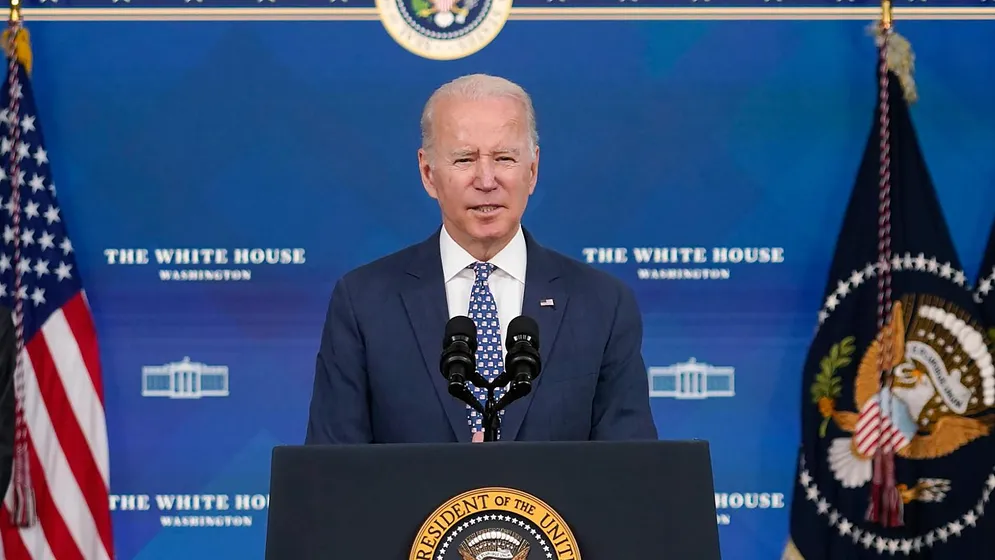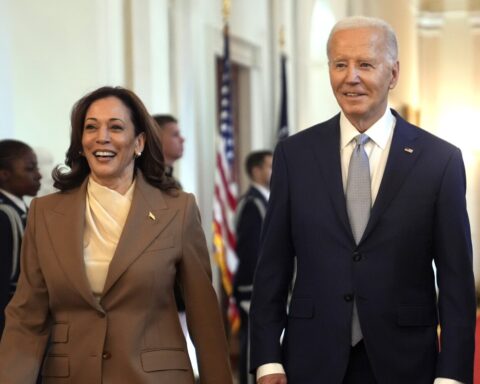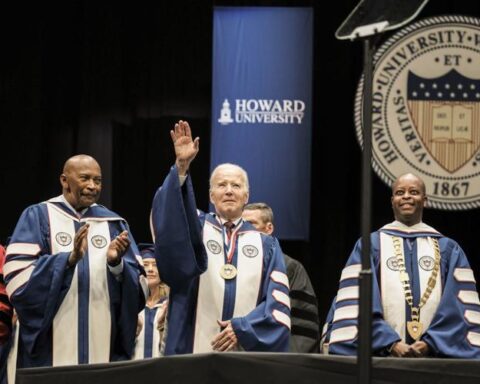President Joe Biden is expected to deliver a speech on voting rights during a visit to Atlanta next Tuesday, traveling to the cradle of the civil rights movement to shine a brighter light on election reform in advance of Martin Luther King Day.
Biden and Vice President Kamala Harris will travel to Atlanta “to speak to the American people about the urgent need to pass legislation to protect the constitutional right to vote and the integrity of our elections from corrupt attempts to strip law-abiding citizens of their fundamental freedoms and allow partisan state officials to undermine vote counting processes,” a White House statement said.
The President is also expected to touch upon voting rights in his speech at the Capitol on Thursday to mark the one-year anniversary of the insurrection, officials say, but intends to address the topic in a far more substantive way next week.
Over the course of the first year of his presidency, Biden has repeatedly called on Congress to pass federal voting rights legislation and denounced Republican states for instituting restrictive voter laws. The Biden administration now faces mounting pressure to get Congress to a pass voting rights law ahead of the midterm elections.
And in remarks last month at a historically Black university in South Carolina, Biden signaled a renewed emphasis on pursuing voting rights, saying his administration was “going to keep up the fight until we get it done and you’re going to keep up the fight and we need your help badly.”
The voting rights speech in Atlanta comes as Congress continues to trudge forward in its pursuit of voting rights legislation.
The Senate is expected to take up voting rights in the next few weeks. Senate Majority Leader Chuck Schumer set a deadline of January 17 — Martin Luther King Day — for the Senate to vote on a rules change if Republicans continue to block voting rights legislation.
The Democrat-backed pieces of legislation Biden has called on Congress to pass contain provisions aimed at fighting voter suppression, making it easier to register to vote, making Election Day a public holiday, ensuring states have early voting for federal elections and allowing all voters to request mail-in ballots.
White House press secretary Jen Psaki told reporters on Tuesday that Biden “absolutely feels that getting voting rights done is fundamental.” She also underscored the President’s “commitment or openness to making changes to the process to protect people’s constitutional rights should that be the point we get to” — namely, pursuing reforms to the filibuster.
Psaki also said the White House is “working in lockstep” with Schumer.
“He’s obviously (given) a timeline for that. We’re going to work with him on getting that done,” she added.
Leaving Schumer’s office after a meeting on voting rights and Senate rules on Tuesday, West Virginia Democratic Sen. Joe Manchin, a key moderate vote, suggested he’s open to some modest changes to the Senate’s filibuster rules.
But in yet another warning sign to his party, Manchin made it clear that he’s not in favor of changing the rules along straight party lines to ease passage of the voting rights bill. That means it’s unclear what — if anything — will change.
Senate Minority Leader Mitch McConnell has signaled that reforms to the Electoral Count Act of 1887 are “worth discussing,” but made clear he remains strongly opposed to other changes Democrats are pushing to make to election laws.
McConnell joins a growing bipartisan mix of senators open to clarifying the law that dictates how electoral ballots are counted by Congress in the wake of last year’s Capitol riot on certification day.
Schumer was asked at his weekly policy presser on Tuesday whether he would consider working with Republicans to revise the Electoral Count Act instead of Democrat’s Freedom to Vote Act, which GOP strongly oppose, and he argued that would “make no sense.”
“If you’re going to rig the game, and then say, ‘Oh, we’ll count the rigged game accurately’ — what good is that?” Schumer asked.





